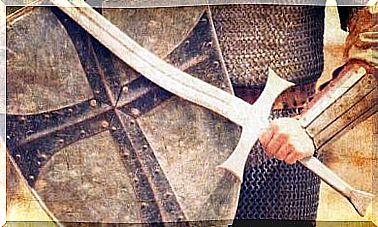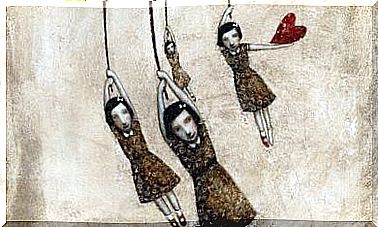12 Angry Men: A Leader Changes Group Opinion
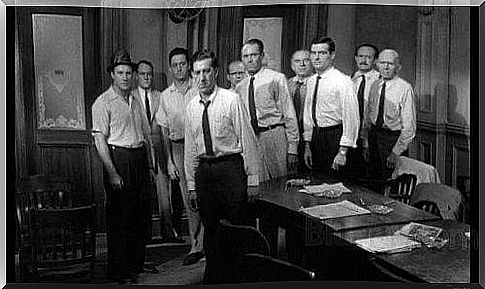
12 Angry Men is a drama written by Reginald Rose. Initially, he wrote the script for television. Later, however, producers adapted the script for cinema and theater.
Reginald Rose grew up in the United States. He devoted his life to writing screenplays, especially for television, in the 1950s. His screenplays reflected the growing interest in social and political issues.
The scenarios generally depicted a form of controversy with a clear and precise approach to the reality of the time.
His most famous and successful work is 12 Angry Men, in which he describes the complexity of man. He delves into this very subject, especially since the characters struggle with their feelings and realities, while at the same time having to remain as objective as possible.
The TV series premiered in 1954. Rose later adapted the screenplay for theater. After achieving great success in theaters, Sidney Lumet directed the film in 1957. This film brings together the best blend of television, theater and film.
The plot
12 Angry Men has a complex plot, but the common thread that brings it all together is the jury made up of 12 completely different men.
Together they must agree on whether they consider the accused innocent or guilty. The suspect is charged with murder and the jury’s verdict will have major consequences.
At the beginning of the film, a judge finishes the trial of an 18-year-old boy. The 12 men must confer together and ultimately decide whether he is guilty of murdering his father. If they find the suspect guilty, he will face the death penalty on the charge of “premeditated murder.”
At first it seems that their deliberations will not take too long and they will decide that he is guilty. Yet one of them isn’t so sure, and maintains what he calls “a reasonable doubt.” In the face of this doubt, the man says, the men should reconsider their grave accusations.
This man who opposes the way the rest of them think presents his arguments. He asks for a new vote to see if anyone else has changed their mind. After asking for a vote, it becomes clear that the group is beginning to doubt.
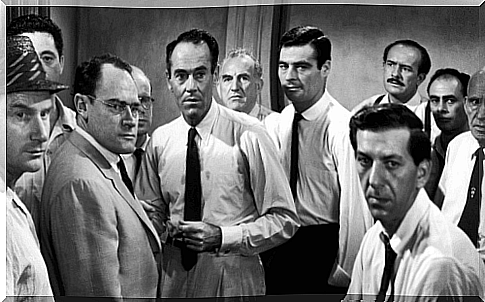
The group then decides to reconsider their decision, still analyzing the case a bit. They discuss the evidence, and the statements made by the witnesses, and then draw new conclusions.
During this consultation, these 12 angry men discuss their fears, their life experiences and expose their personalities. They also reveal the prejudices they have.
12 Angry Men: The Leader’s Ability To Change A Verdict
” Reasonable Doubt” arises when all members of the jury want to quickly complete the deliberation and declare the accused guilty. In a quick and ill-considered first ballot, all but one of the jurors declare the defendant guilty of the crime.
This is the point where the deviant juror’s leadership qualities become apparent. The leader eventually makes the other men doubt the suspect’s guilt. This character provides deeper thoughts. Let’s take a moment and use this character as an example to talk about the characteristics of a good leader.
A leader must be able to listen
During the course of this film, the protagonist listens carefully to everyone’s opinion. He is not tempted to interrupt the rest of the judges. By simply listening, one gains the ability to gather information, identify problems, make decisions, and resolve conflicts.
He makes his teammates feel important and integrated. This makes it easier for them to stay involved. This dedication allows the men to get emotionally involved in the discussion.
A good leader is assertive
The jurors want to settle the case as quickly as possible and move on with their lives. However, the leader fights against this trend and expresses his dissatisfaction. Confronting the majority is not easy. By doing this, you expose yourself and become vulnerable.
In the same way, a leader expresses his true feelings and opinions, regardless of what the others think. Leaders are aware of their responsibility and take it, even if it puts them in an awkward position.
In addition, a good leader can remind their group that the decisions they make as a group do have consequences.
A leader leads, coordinates and moderates
The protagonist moderates the discussion among the judges. He manages and resolves conflicts to ensure communication is fluid and effective. He also knows when to think about himself and the way he communicates.
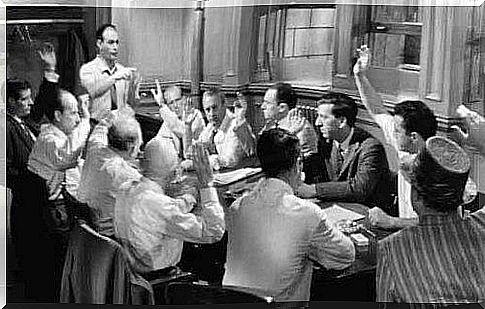
A leader should be honest
Our leader in the film is not closed off or secretive. In the first round of voting, he votes innocent, because he wants an open debate.
He doesn’t necessarily want to argue with his opponents, but he wants to do what he thinks is right. He is aware that if he does not speak out against the majority, there will be no debate and they will sentence the boy to death.
In that sense he is honest about his feelings. He doesn’t keep quiet. On the contrary, because he expresses his doubts. He’s also honest about not being sure what to think.
That’s why he wants to hear the opinions of the other men. This is how he begins to understand others. His sincerity is his best tool to resolve doubts or conflicts.
The leader analyzes and solves
Over the course of the movie, “12 Angry Men,” we see the leader recognize the opportunity to voice his opinion and make the rest of the group doubt. With great strength and his ability to analyze people, he tries to give the group a new look at the facts of the process.
It cannot be denied that because of the reasonable doubt that arises, the verdict must be ‘innocent’. However, it is difficult to distinguish between the probable and the possible. This gives the viewer the freedom to draw their own conclusions as to whether the film ends with a conviction or not.
